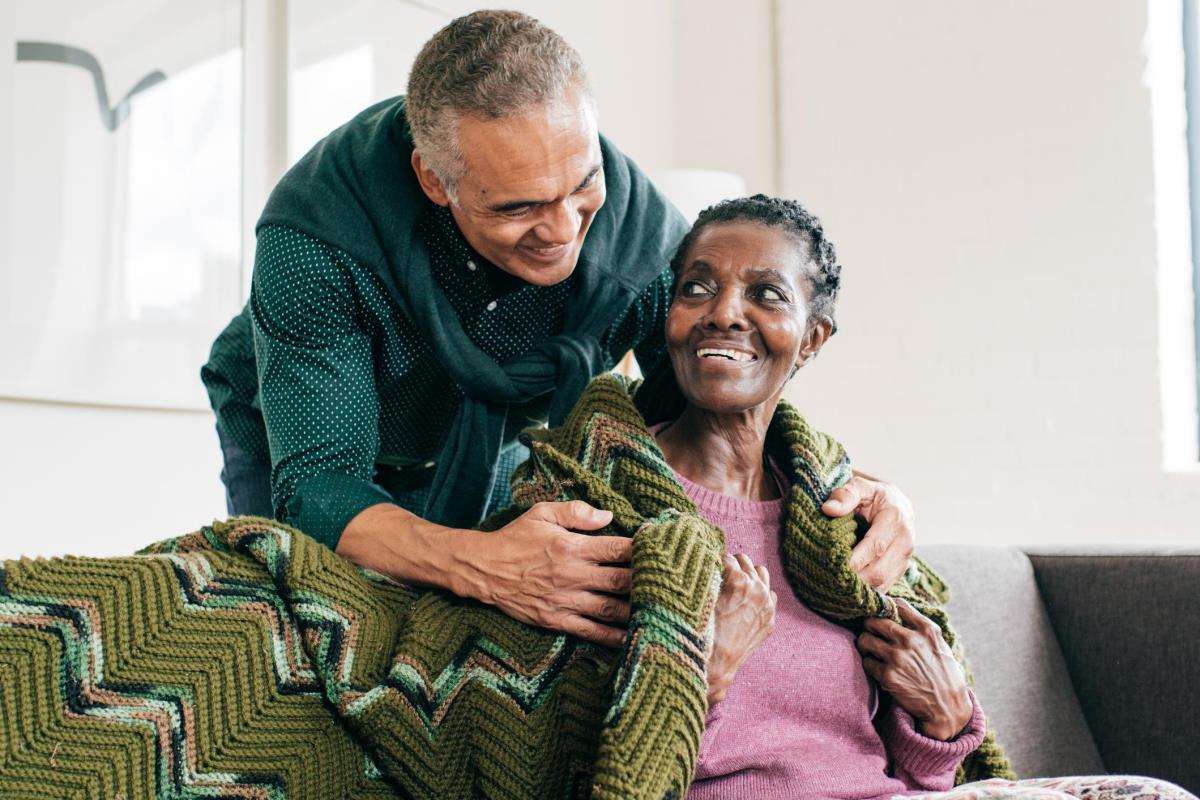Nine steps to help people living with dementia during the Coronavirus pandemic

This is a worrying time for everyone, but especially for those affected by dementia and those caring for them.
For carers, it’s also a more exhausting time than usual, with social isolation and lockdown policies exacerbating already stressful situations for many.
For those caring for loved ones with dementia, it may seem relentless – especially if the dementia is quite severe. It’s critical to keep your spirits up and keep giving yourself little breaks, when and wherever you can grab them.
- If your loved one falls asleep in the afternoon, take a nap too, try some mindfulness exercises or just sit in a sunny corner of the garden (patio, porch or room). Indulge in little moments or simple pleasures rather than just racing around or doing chores. It will help keep your morale up.
- Don’t read social media where people bang on about house clearing and spring cleaning – or if you can’t resist, remember to be kind to yourself and recognise that you are in a different position where it may well be an unrealistic expectation.
- Set small and realistic targets for the day – that may be both of you getting up, washed, dressed and out for a short stroll, playing a game or listening to some music. Acknowledge your achievement in this.
Whether or not you’re living with your loved one there are measures you can take to help support them – these tips will help anyone trying to support a person with dementia during this period.
1. Sanitising – Prevention is better than cure, so ensure that anyone coming in or out of the property understands and goes through the correct and appropriate processes. For example, hands should be washed often and well with soap and water or hand sanitiser; items that are handled a lot such as door handles, phones, remote controls and taps should also be regularly sanitised – as well as any shopping deliveries before the packages enter the home.
2. Medicines - Speak to your GP or local pharmacy to arrange for regular deliveries of required medicines.
3. Food - For food supplies use online shopping where possible (Register with the Government as vulnerable and therefore eligible for priority booking) or ask family members, friends or a community volunteer for help. Where possible try to ensure items coming into the house are sanitised.
4. Be Prepared - Put arrangements or a plan in place should you or the person you care for become unwell.
a. Make sure emergency numbers are prominently displayed
b. Consider getting a mandate to help with/ take over banking
c. Pack an overnight bag with essentials in case of hospitalisation
d. Fill out the Alzheimer’s Society This Is Me form in advance of sickness and it being needed.
5. Exercise – Help them stay physically active with gentle exercises – there are plenty of videos online if you or a carer can help with the IT access. Movement and flexibility are key, so any simple arm, hip or leg stretching exercises will all be valuable.
6. Mental Stimulation – Depending on the extent of the dementia, try reading (or download books free from Audible), sing or listen to music, paint or colour in, play board games or puzzles, tell jokes and ask them to tell stories which reminisce and take them back to their past.
7. Stay Connected - Family and friends can support in many ways, whether by picking up the phone, email, Skype, or even writing a letter. Many elderly and dementia patients may not be internet savvy, so if someone can help set these up that will be a huge enabler. Consider regular times for phone calls to help create a routine.
8. Community Support – Investigate what is available in their local area. This is especially important if you are caring for someone remotely. In many areas there are now local support groups being set up by neighbourhood watch, parish, community groups and others to help the elderly, vulnerable and self-isolating. There’s also the NHS Volunteer Responders who may be able to help depending on your area.
9. Warn Against Scams – Some unscrupulous people are using the anxiety around the pandemic to target people with scams – especially the elderly. Remind loved ones not to speak to people they don’t know and not to give out personal details or money etc.





